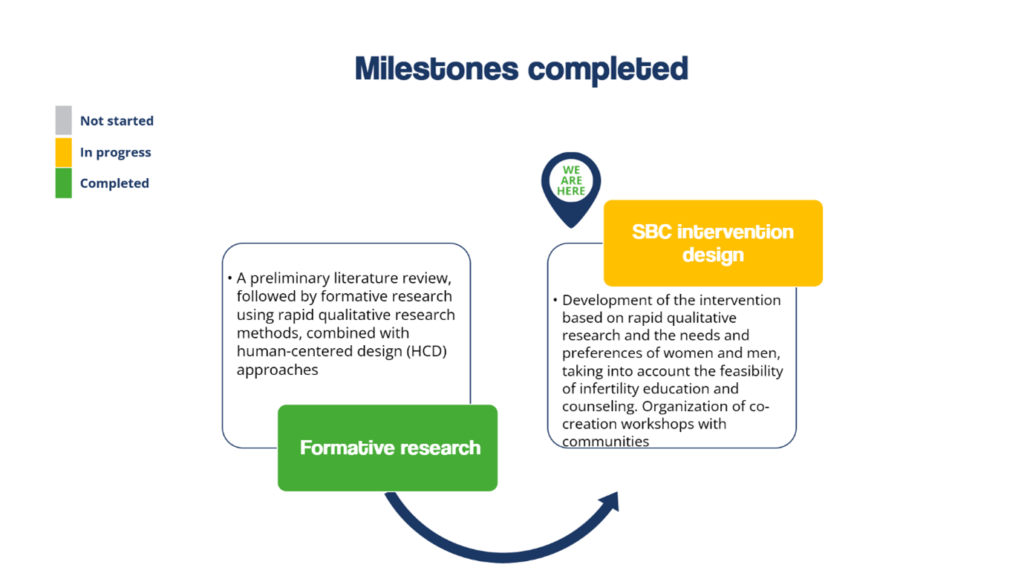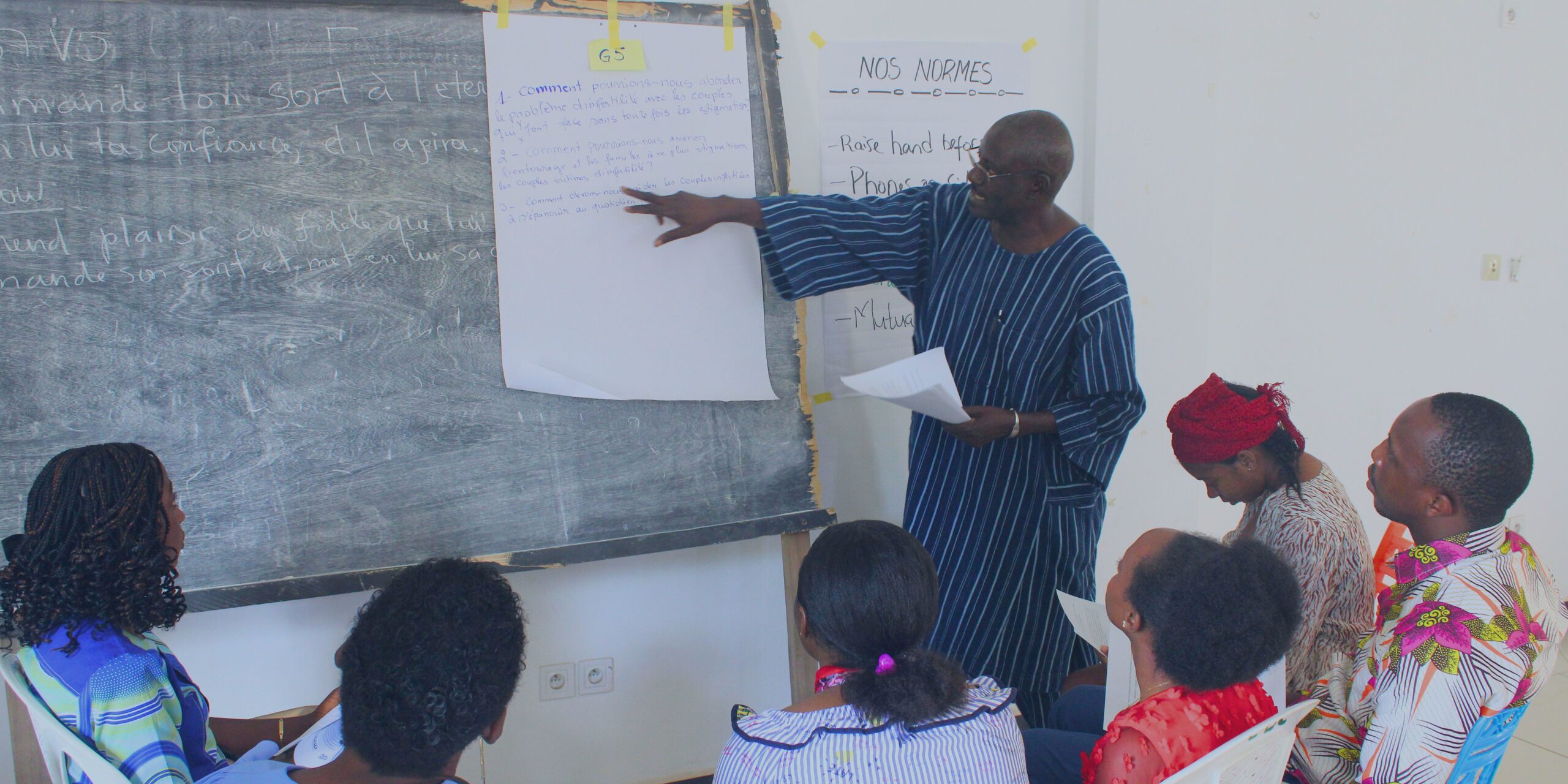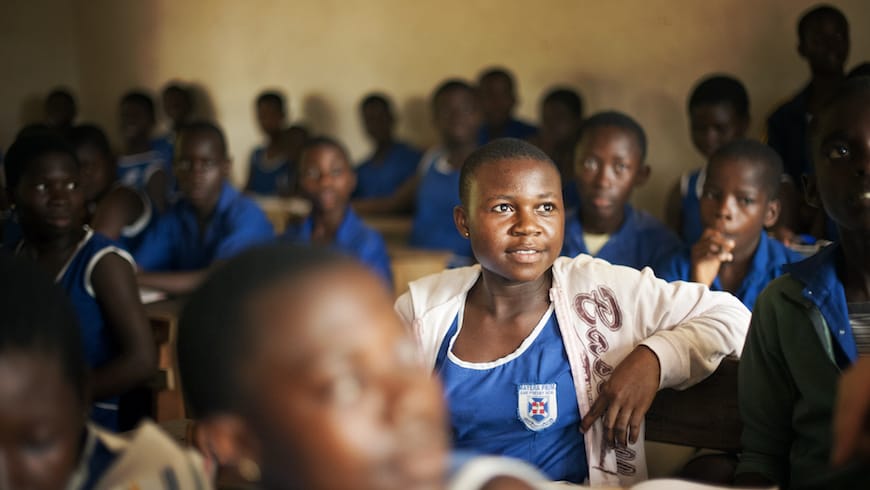Informing an SBC Infertility Intervention that Supports Reproductive Agency
Globally, one in six people experiences infertility in their lifetime, with sub-Saharan Africa reporting the highest instances of period infertility. Individuals and couples with infertility face immense stigma, as well as social, health, and economic consequences negatively impacting their sexual and reproductive health decisions and contributing to health-related behaviors such as early marriage, short birth spacing, and limited contraceptive use. Despite this, infertility-related stigma is rarely addressed in programming.
To address these gaps, USAID’s Agency for All project is designing context-specific social and behavior change (SBC) interventions in Cameroon and Kenya, aimed at supporting individuals to build their agency to achieve their self-determined reproductive goals.
Study Description
With support from USAID’s Bureau for Africa, EVIHDAF, in collaboration with other members of the Agency for All consortium (University of California San Diego’s Center for Gender Equity and Health (UCSD-GEH), Makerere University, Matchboxology, and Save the Children), is conducting a scope of work from 2023 to 2025 to explore whether family planning programs could expand and increase impact and reach and support the achievement of reproductive agency by addressing fear and stigma through the integration of infertility education, counseling, and stigma reduction activities.
Goal and objective
The objective of this study is to inform the design of an SBC intervention that supports women and couples to build agency to achieve their self-determined reproductive goals by increasing fertility-related knowledge and decreasing infertility-related stigma.
Approach
Two phases will mark this work:
- Phase 1 – Formative research: To inform this work, this study will be grounded in a preliminary literature review and will be followed by formative research utilizing rapid qualitative research methods, paired with human centered design (HCD) approaches, to explore individual, community, contextual and programmatic factors related to infertility, as well as the influence these factors have on the reproductive agency in Cameroon and Kenya;
- Phase 2 – The SBC intervention design will be developed based on the understanding gained from the rapid qualitative research and will be based on the needs and preferences of women and men, the parameters of what is feasible in terms of infertility education and counselling and will be co-created with communities through HCD-inspired workshops.

Snapshot
Study area: Cameroon and Kenya
Project Date: 2023-2025
Consortium Partners: Center on Gender Equity and Health, UC San Diego; EVIHDAF; Makerere University; Matchboxology; Save the Children
Funder: UDAID’s Bureau for Africa
Targets: 1) Local perceptions of the causes, norms and consequences of infertility are explored. 2) Data is available on how infertility-related knowledge and norms influence reproductive and contraceptive behaviour. 3) Opportunities and gaps in infertility programming will be identified.
Ongoing Projects

Social Behaviour Change Workshop on infertility
Social Behaviour Change Workshop on infertility

